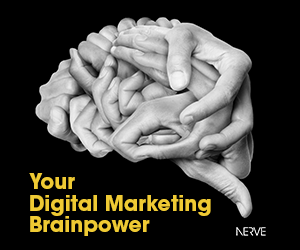In the digital era, the creation and execution of a successful digital marketing strategy are crucial for business organization aiming to fly high in a competitive marketplace. A robust digital marketing strategy can elevate brand awareness, promote targeted lead generation, and drive significant return on investment (ROI).
This comprehensive guide will explore what does a successful Digital Marketing Strategy build?
and the key components and strategies that constitute a successful digital marketing plan, while also providing practical tips to implement these strategies effectively.
Understanding Digital Marketing Strategy
A digital marketing strategy is a plan that helps your business achieve specific digital goals through carefully selected online marketing channels.
These channels include paid, earned, and owned media. A successful strategy requires a deep understanding of your business’s objectives, your target audience, and the best tactics to reach these individuals. Before going to the key components if you are looking for the best digital marketing agency give a try to NERVE
Key Components of a Digital Marketing Strategy
Goal Setting (SMART Goals):
Specific: Clearly define what you hope to achieve.
Measurable: Use tools to track progress.
Achievable: Set realistic expectations.
Relevant: Goals should align with your overall business objectives.
Time-bound: Set deadlines for your goals.
Audience Identification and Segmentation:
Categorically collect data through customer interactions and market research and segment your audience based on demographics, interests, and behaviors to tailor your marketing messages.
Channel Strategy:
Determine the most effective digital channels for reaching your audience. These could include social media, SEO, email marketing, and digital advertising.
Content Strategy:
Develop a content plan that addresses your audience’s needs and preferences. Content can range from blog posts and articles to videos and podcasts.
Budget Planning:
Allocate resources where they can generate the best results. Keep track of spending to ensure it aligns with your digital marketing goals.
Analytics and Optimization:
Regularly analyze the performance of your digital marketing efforts and optimize based on data-driven insights.

Strategies for Building a Successful Digital Marketing Plan
1. Search Engine Optimization (SEO)
SEO involves optimizing your website to rank higher in search engine results pages (SERPs), thereby increasing organic traffic. Key strategies include:
Keyword Research:
Identify terms that your target audience uses when searching for your products or services.
On-page Optimization:
Ensure your website’s content, structure, and HTML tags are optimized for relevant keywords.
Off-page Optimization:
Build quality back-links from reputable sites within your industry.
2. Content Marketing
Content marketing focuses on creating and distributing valuable, relevant, and consistent content to attract and engage a clearly defined audience. Effective content marketing can lead to profitable customer action. Key elements include:
Blog Posts:
Provide useful information that answers common questions from your audience.
Videos:
Increase engagement by creating instructional or behind-the-scenes videos.
Infographics:
Simplify complex data into digestible visual content.
3. Social Media Marketing
Social media marketing involves using platforms like Facebook, Twitter, and Instagram to connect with your audience to build your brand, increase sales, and drive website traffic. Strategies include:
Consistent Posting:
Keep your brand top of mind with regular updates.
Engagement:
Interact with followers through comments and messages.
Paid Advertising
Amplify your reach with targeted ads.
Email Marketing
Email marketing involves sending emails to prospects and customers. Effective email marketing converts prospects into customers, and turns one-time buyers into loyal, raving fans. Strategies include:
Professionalization:
Tailor emails to subscriber preferences.
Segmentation:
Group your subscribers by behavior or demographics.
Automation:
Use autoresponders to deliver messages at the right time.
Monitoring and Adjusting
A successful digital marketing strategy is never static. Regular monitoring and adjusting are crucial to its success. Use analytics tools to track performance metrics such as click-through rates, engagement rates, and conversion rates. These insights will help you refine your strategy, helping you make informed decisions that enhance your marketing efforts.
Importance of a Successful Digital Marketing Strategy?
In today’s technology-driven world, having a good digital marketing strategy is not just a indulgence but a necessity for businesses aiming to succeed and expand their reach. As more consumers turn to the internet for shopping, information, and entertainment, businesses that fail to adopt a digital approach risk falling behind their competitors.
Enhanced Visibility Online
In the digital age, the first point of contact between a business and a potential customer is often through an online search. A robust digital marketing strategy ensures that your business stands out in the digital landscape. Strategies like Search Engine Optimization (SEO) and pay-per-click (PPC) advertising enhance your visibility on search engines like Google, making it easier for potential customers to find you.
Targeted Audience Reach
Unlike traditional marketing, digital marketing allows for unprecedented targeting of specific audiences. Tools and platforms now exist that enable marketers to target audiences based on demographics, behaviors, interests, and even geographic locations.
This precision leads to higher efficiency in marketing campaigns, ensuring that your marketing efforts reach those most likely to be interested in your products or services.
Cost-Effectiveness
Digital marketing offers a more cost-effective solution compared to traditional marketing methods like print, television, and radio. With digital marketing, small businesses and startups can achieve a larger impact without the need for a significant budget. Platforms such as social media, email marketing, and content marketing require minimal investment compared to the costs associated with traditional media.
Built Customer Engagement
Digital marketing strategies enable continuous interaction through various channels like social media, blogs, and interactive websites. These interactions provide valuable insights into customer preferences and behavior, which can guide further marketing strategies and product development. Moreover, real-time engagement through digital platforms allows for immediate resolution of customer issues and feedback, enhancing customer satisfaction and retention.
Data-Driven Decisions
One of the most significant advantages of digital marketing is the ability to collect and analyze vast amounts of data. From website traffic analytics to social media engagement rates, digital tools offer actionable insights that are crucial for making informed decisions.
Businesses can use this data to optimize their marketing strategies, improve product offerings, and better understand their market and competitors. This data-driven approach leads to more effective marketing strategies and business growth.
Competitive Advantage
In a market where almost every business is leveraging digital tools, having a strong digital marketing strategy can provide a crucial competitive edge. It enables businesses to stay ahead with the latest digital trends, adapt to changes in consumer behavior, and engage with customers through modern platforms.
The importance of a strong digital marketing strategy in today’s business environment cannot be overstated. It not only provides a pathway to increased visibility and customer engagement but also offers a cost-effective, data-driven, and ascendable approach to achieving business goals. In a world where digital presence is synonymous with business success, investing in a solid digital marketing strategy is essential for any business looking to thrive in the digital age.
Conclusion
A successful digital marketing strategy is an integral part of any modern business. It involves a holistic approach encompassing various tactics from SEO to content marketing and beyond. By setting clear goals, understanding your audience, and continuously adapting your strategy based on performance data, you can achieve significant improvements in customer engagement and ROI. Remember, digital marketing is an ever-evolving field, and staying informed about new trends and technologies is crucial to maintaining a competitive edge.






